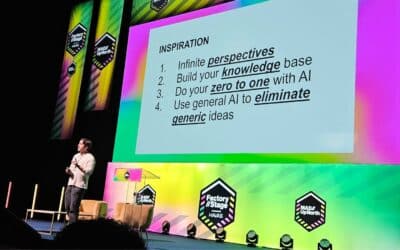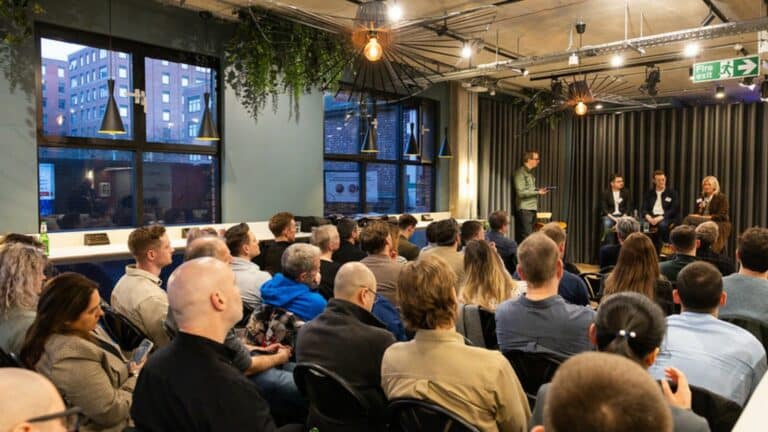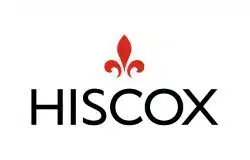AI will “definitely replace jobs over time” but it will pave the way for new types of roles to emerge in the future, warns Kenny Skelton, managing director – media solutions at EssenceMediacom.
Skelton was one of a number of Northern leaders and experts speaking at Prolific North’s ‘Demystifying the myths and risks as an agency using AI’ event, hosted alongside Verlingue and Hiscox on 27 February at Colony Silk Street in Manchester.
From how AI is transforming the way agencies operate to taking on the myths and risks surrounding AI, there were two lively panel discussions during the evening event to tackle AI’s opportunities and challenges.
AI is “no longer a novelty, but a reality,” explained Max Tipper, head of UK Media at Hiscox, kicking off the event with an overview of how AI has transformed how people work. It is now no longer a “question of if, but how you use it”. Amidst uncertain geopolitical times, the future “won’t be fought with weapons – but chatbots” and users must understand the importance of ”ethical use”.
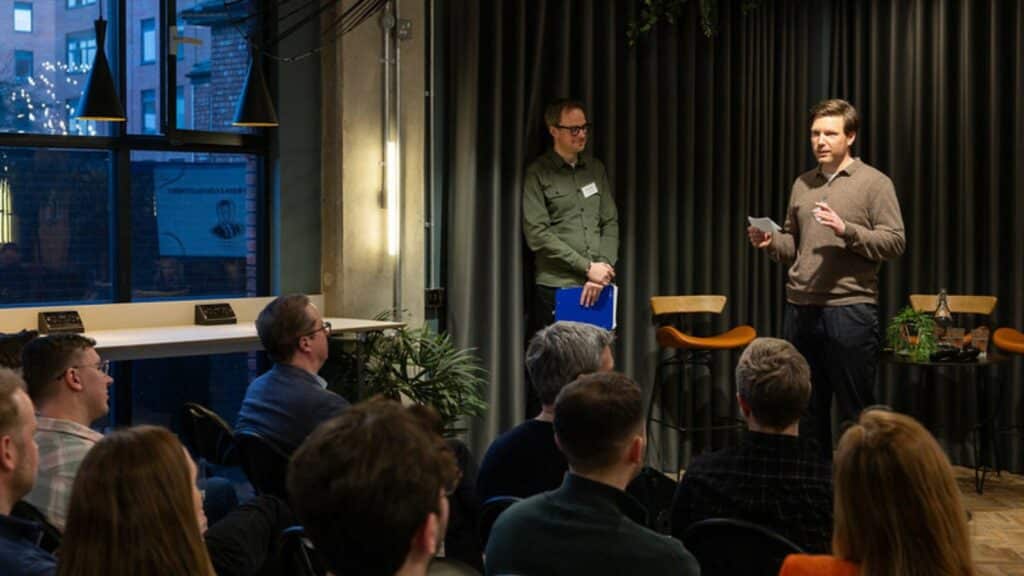
A panel on AI’s opportunities and how to balance innovation with caution followed, featuring Danny Blackburn, chief strategy officer at KINESSO UK&I; Denise Harris, chief creative officer & co-founder at Sum Vivas; and Ciaran Howley, lead strategist at Tangerine Communications who stepped in for Anna Rashid.
AI has “changed everything”
AI has changed everything, performance marketing platforms are now embracing AI and it has “changed the game” for KINESSO in how it approaches platforms, said Blackburn (KINESSO),
The fundamental risk AI presents from a performance marketing perspective? It’s the “regression” with marketers using the same algorithms and approaches to reach audiences in the same way. Now, agencies are pondering whether AI can help with business, not just from an automation perspective, but how it can make a difference creatively.
Over at Sum Vivas, Denise Harris explained how her company integrates AI into ‘digital humans’. From airports to shopping centres, the data that is recorded from every customer interaction is “allowing businesses to be way more strategic”.
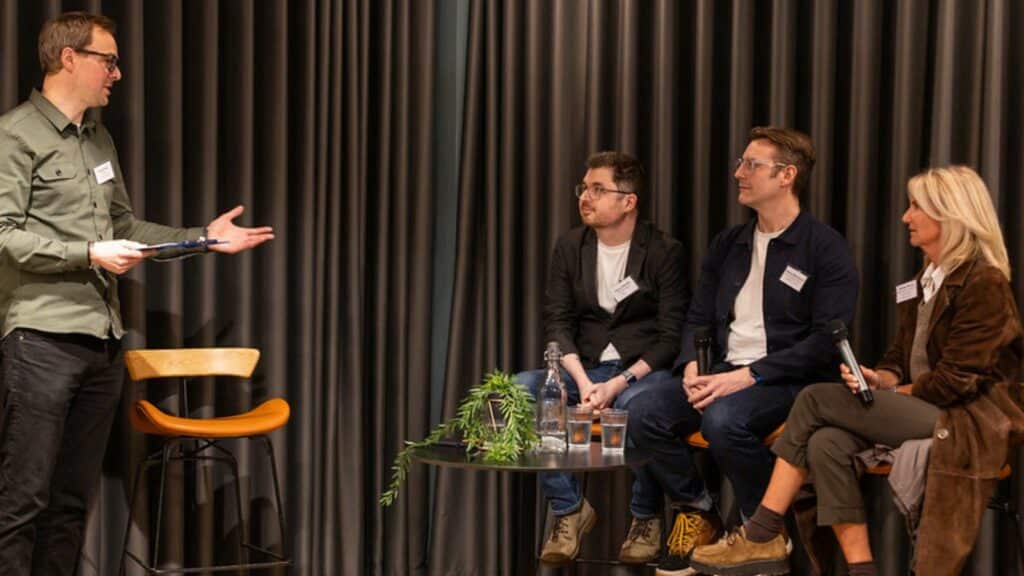
Over at Tangerine, there has been a recent, major investment to revolutionise its agency model in AI.
“If we don’t catch up or stay at the same speed, then we’ll be left out,” said Ciaran Howley. On AI-driven efficiency and human creativity, Harris (Sum Vivas) explained how AI can transform the mundane and free up time within a company or staff to be “a lot more creative”.
At KINESSO, the agency is using it for day-to-day automation but AI has also become a “really central part” of its content and creative process. AI can get you up to “70% of the way there” but human expertise means you can create “really unique, valuable, high quality content” and do it much more effectively and much faster said Blackburn.
Right now, it’s still “just a tool”. Over at Tangerine, Howley said we are now in an “idea economy”. On the creative process, AI “won’t be replacing the time of designers and video editors and shooters” but agencies will be less dependent on stock libraries and will embrace tools.
But it’s an “input, not an output,” he urges. “It’s not replacing the people who create those outputs” as it’s a tool to assist strategy or kick start the first version of creativity.
Leaders on the panel shared how AI has helped improve campaign performance and strategy, from helping a beauty brand to create tailored content targeted at specific cities at scale, to improving customer interactions in airports with the use of AI integrated digital ‘brand ambassadors’.
“AI can be really effective but it has to be an open and transparent process,” said Blackburn (KINESSO).
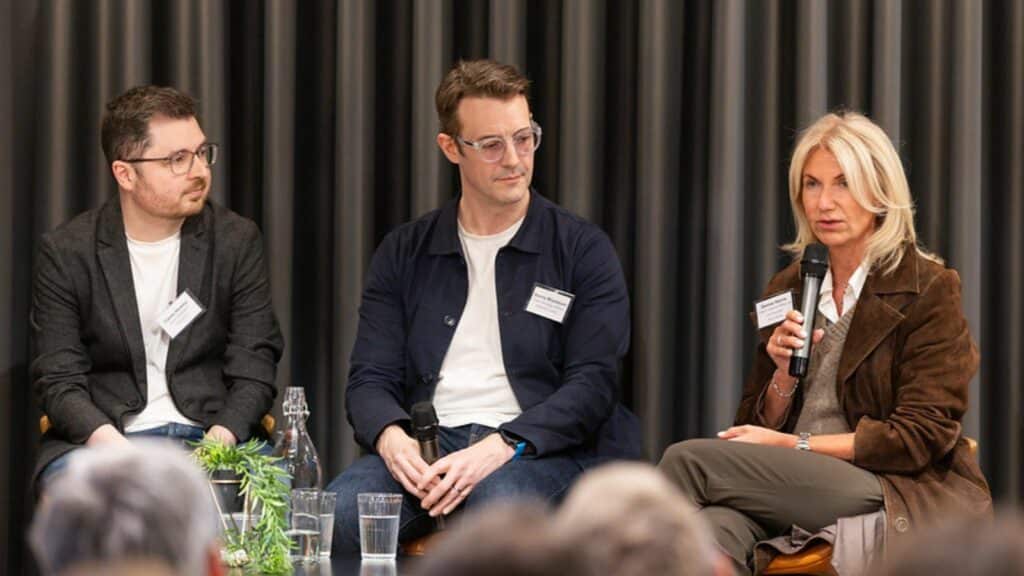
While some agencies are building their own proprietary in-house tools or techniques, others are integrating or using third party technology platforms, whether it’s using Adobe’s Firefly for creative content, Midjourney or brand voice management tools to scale content across brands, audiences, geographies, and languages.
Over at Tangerine, the agency has built a panel of experts to research and assess any AI tools, exploring what happens to the data before and the tools are brought into the business.
On how agencies ensure that AI-driven decisions remain ethical and free from bias, Harris (Sum Vivas) warned that “unethical agencies” will now utilise people’s voices without permission and it will become “really hard to monitor”. It’s an area where you have to be “super careful” and often involves a myriad of contracts due to IP.
“There are a number of famous people we’re working with in the music industry who have specifically asked us to clone their voice and build them a digital avatar of themselves,” she explained, such as helping an accomplished musician who hates performing thanks to anxiety struggles.
“We have made a digital replica of them and cloned their voice so fans can interact with them 24/7 but only with the information he wants them to receive.”
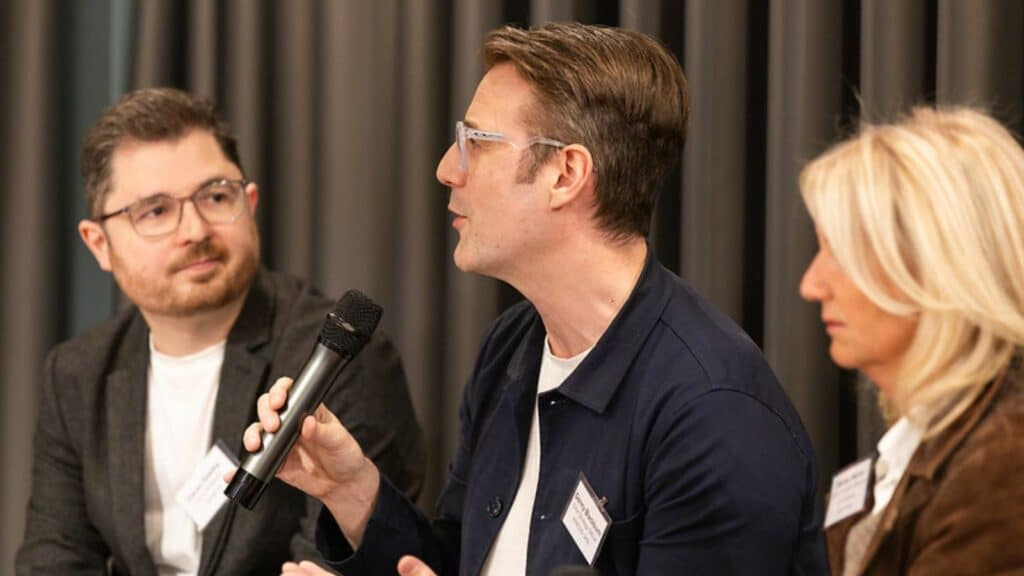
As a former journalist, Blackburn (KINESSO) said it’s “really important” staff are aware of both the pors and cons of AI, questioning tools and processes.
Wrapping up the session, Prior asked the panel about the skills that agency teams need to develop to be able to work most effectively with AI. For Howley (Tangerine), not everyone needs to be a whiz at AI but awareness and transparency about its uses are key.
It’s not “shameful” to admit you are upskilling through AI or have found a quicker and more efficient way of doing tasks, agreed Harris (Sum Vivas). It is up to leaders to encourage those conversations. The key thing that has become much more apparent now is you cannot get a good output from AI if you have no knowledge or skill to start off with.
There’s still an “apprehension and nervousness” around admitting to using AI and there is a “massive gap” as students emerging from universities are not being taught that they will be expected to use AI. The panel warned there will be a two year gap where new graduates will need to get over the assumption that using AI is cheating. The future is all about experimentation, added Blackburn (KINESSO).
“It’s the truth no one likes to talk about…”
The final panel session tackled the common myths and risks surrounding AI with Andy Eva-Dale, CTO at Tangent; Louis Georgiou, co-founder at EM Code; Maibritt Olesen, client director at Verlingue; Kenny Skelton, managing director – media solutions at EssenceMediacom; and Glyn Morgan, partner | solicitor at Greengage LLP.
The pace in change thanks to AI has been rapid from the emergence of DeepSeek to the government’s AI opportunities action plan. But AI is “not a magical fix yet” said Andy Eva-Dale (Tangent).
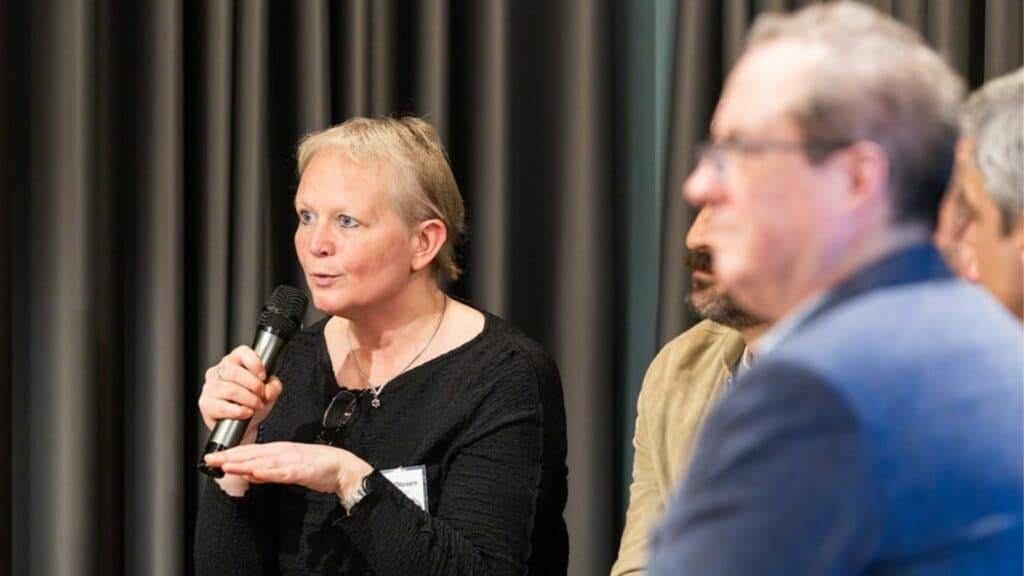
The threats are “real” but agencies need to embrace change or risk being “left out in the future”. Louis Georgiou (EM Code) agreed, adding that agencies risk being left behind as AI is the inevitable future that’s not going away anytime soon.
From a legal perspective, Glyn Morgan (Greengage LLP) gave three key considerations for agencies using AI. 1) plan very carefully 2) Be transparent 3) Take your clients with you on your AI journey. “If you use AI in any creative way, to not be transparent is asking for trouble”.
Kenny Skelton (EssenceMediacom) agreed on the importance of transparency with clients and said he has seen how they have been “really inspired” by innovations emerging from AI and agencies can “be the light”.
Tangent received £5m investment for a specialist AI division in response to demand from both clients and prospects to tap into new opportunities made possible by AI, machine learning and automation. With the emergence of DeepSeek, it’s now more important than ever to ask questions about data and how this is transferred.
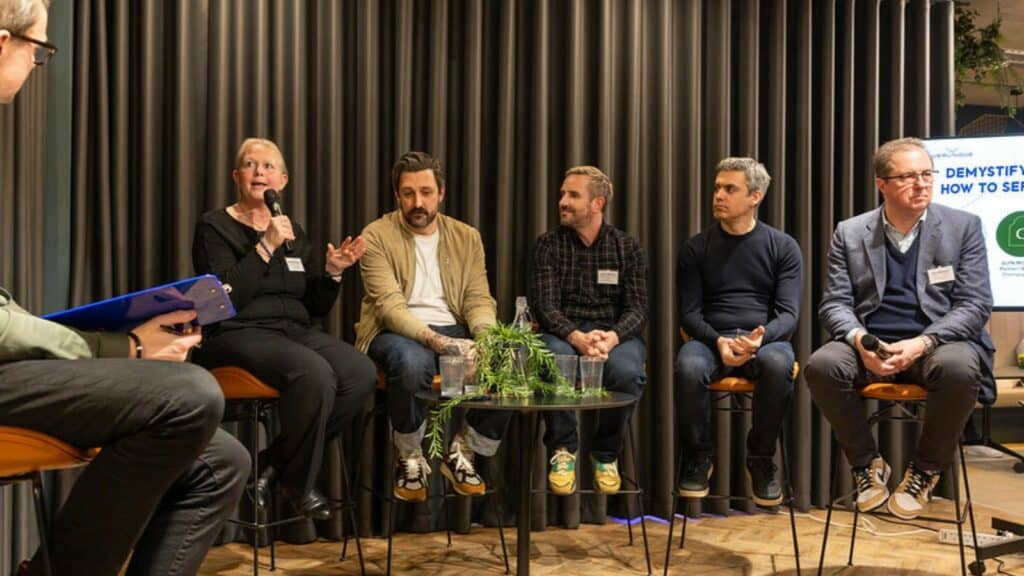
For Maibritt Olesen (Verlingue), there is an inevitable progression with AI but it’s taking some brands “longer to get their heads around it”. From an insurance perspective, she echoed other leaders on the panel and said “transparency is key” as contractual obligations are becoming more complex such as safeguarding data. Agencies need to get sign-off at “every step of the journey” so it’s vital to have policies and procedures in place.
Most generative AI content is not 100% copyright-free and those rights vary from country to country, added Morgan (Greengage LLP). There is a “lot of risk there” but agencies need to be transparent about those risks with clients, and most clients are reasonable and understand the risk. Agencies should remember these are tools and “you should be using them – they shouldn’t be using you”.
For any AI tools used or built at WPP, they need to go through compliance and legal teams first explained Georgiou (EM Code). “We spend so much time talking about legal stuff”. The repercussions, if agencies are not careful, is “brand damage” added Olesen (Verlingue).
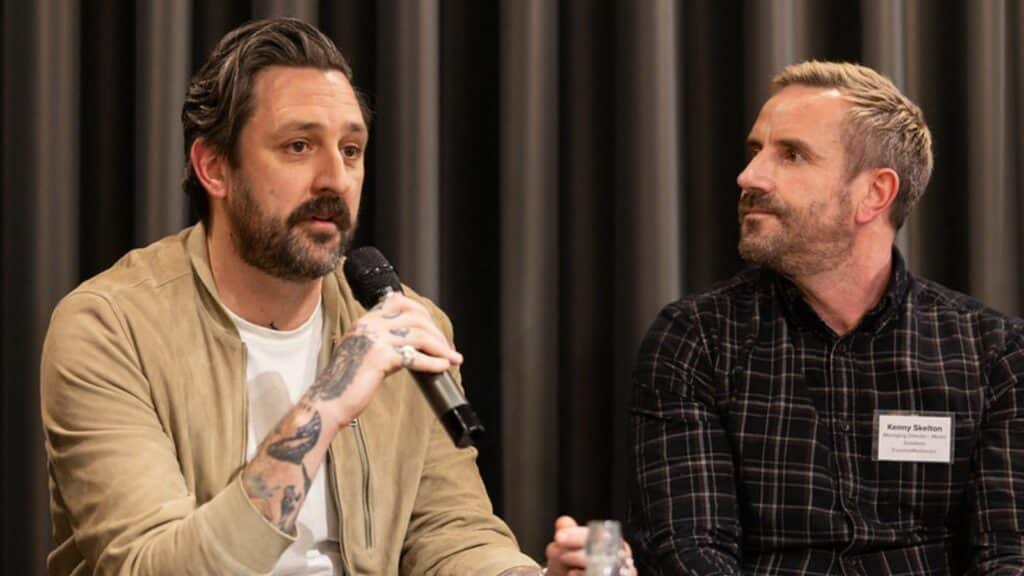
Lawyers are “famous for shaking their heads” but the message should be that agencies using AI should “not be afraid” and exercise “common sense” when using AI, said Morgan (Greengage LLP).
There are still some people that are “terrified” of AI but as businesses, staff need to be given the space to test, have fun and “disco dance” with AI, explained Skelton (EssenceMediacom). On practical steps for agencies to integrate AI without overwhelming teams, Eva-Dale (Tangent) said agencies should pick a “company champion” that is enthusiastic about it as this is the “best way” for adoption.
But the hot topic was over another much debated AI risk – whether AI will replace some jobs. For law firms, AI has become a tool that is “revolutionising” the sector and it means lawyers can now deliver more, at a lower cost.
It “will replace jobs” in future, argued Eva-Dale (Tangent), as people are seen as “quite a big cost” and many systems being produced now are also designed to reduce roles. It will need governance but with the same headcount? This is unlikely.
Georgiou (EM Code) agreed. It’s a “truth no one likes to talk about”. For Skelton (EssenceMediacom), it will “definitely replace jobs over time” mainly due to the type of jobs or tasks but it may be that some jobs are “replaced” by other jobs as new industries emerge.
The key skill now for anyone leaving university is “critical thinking”, added Eva-Dale (Tangent). AI is great for ideas but when it comes to creativity, humans have a unique ability.
There are people out there who have spent years crafting a swish brand and “that has to be respected” warned Olesen (Verlingue). There should still be space for human creativity – not be “exploited” by a machine.
Sponsors


